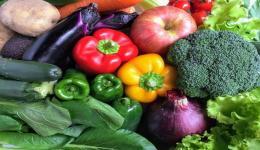Nutritional recommendations for elderly 人氣: 2556
 Nutritional recommendations for elderly individuals should take into account their specific needs and health conditions. Here are some correct nutritional suggestions:
Nutritional recommendations for elderly individuals should take into account their specific needs and health conditions. Here are some correct nutritional suggestions:1. **High Fiber Diet**: Increasing intake of vegetables, fruits, whole grains, and legumes can promote gut health, prevent constipation, and other digestive issues.
2. **Adequate Protein**: Older adults may need more protein to maintain muscle mass and function. Opt for lean protein sources such as chicken, fish, legumes, and soy products.
3. **Calcium and Vitamin D**: Crucial for bone health, helping prevent osteoporosis. Increase calcium intake through low-fat dairy, legumes, nuts, and fish, while ensuring adequate sunlight exposure for vitamin D synthesis.
4. **Control Saturated Fat and Cholesterol**: Limiting excessive intake of saturated fat and cholesterol can help reduce the risk of cardiovascular diseases. Choose healthy fat sources like olive oil and nuts.
5. **Stay Hydrated**: Older adults may perceive decreased thirst due to aging but still require adequate hydration to maintain bodily functions. Drink plenty of water and consume enough fluids.
6. **Maintain Proper Weight**: Maintaining a proper weight is crucial for overall health in older adults. Both obesity and being underweight can increase the risk of cardiovascular diseases, osteoporosis, and other health issues.
7. **Diversify Diet**: Ensure dietary diversity, including a variety of different types of foods to ensure obtaining various nutrients.
8. **Moderate Sugar Intake**: Minimize consumption of high-sugar foods and beverages to reduce the risk of diabetes and other chronic diseases.
9. **Regular Medical Check-ups**: Elderly individuals should undergo regular health check-ups to ensure their nutritional needs are met and to promptly identify and address any nutritional deficiencies or health issues.